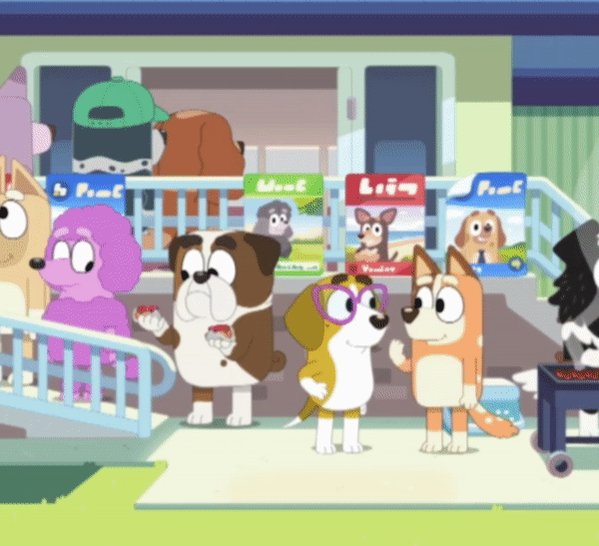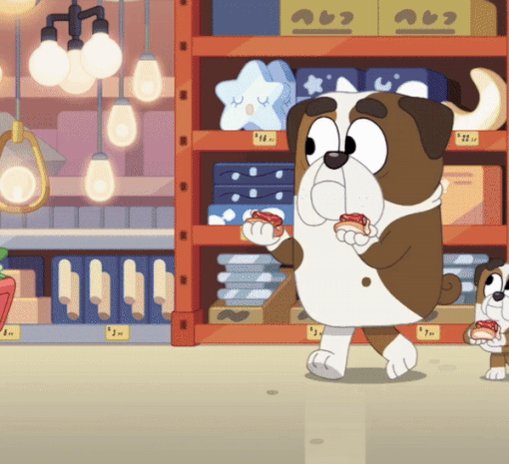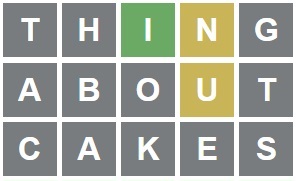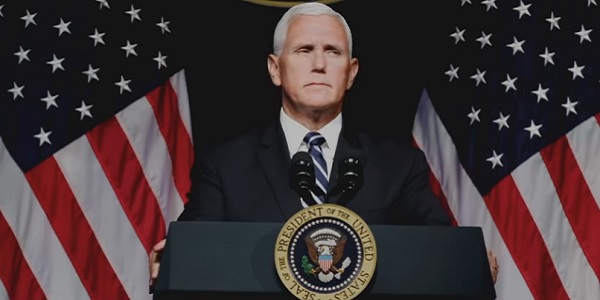The longer that any given TV/Radio/Book/Film/Comic series goes on, the more complex that the world being built within that series will invariably become. Single shot pieces of media generally don't have time to construct a complex world but things that go on for years, will carve out ever more pieces to go on the board. I have not seen anything in the Marvel Cinematic Universe but I am assured that it is now so big that there are nods to films that were 20 episodes ago. Doctor Who which has been going on for almost 60 years, has several editions of both a Continuity and Discontinuity Guide which have been published. Both The Simpsons and The Flintstones are sufficiently complex enough that they have warranted books about the philosophy of the respective series written about them. The Archers on BBC Radio 4 is probably so massive that it would take an entire lifetime to listen to every single series and you'd still not make it to the present day.
The kids' TV show Bluey on ABC Kids (and Disney + for overseas viewers) has at least three podcasts that I know of, and is already famous enough in Australia that you have celebrities lining up to make cameos in it. Three seasons have been released thus far and as the producers of the show have semi-deliberately built the world within the Blueyverse, it is already sufficiently complex enough to chase down questions to do with characters and settings that are not core to the main story.
As the world of Bluey is told through the perspective of the two main protagonists of Bluey and Bingo, everyone else in this world lies in a series of circles which become more diffuse. We do not really know to what degree Bluey and Bingo's circles of friends overlap but we can be sure that this particular Venn diagram includes areas of non-intersection.
Within Bingo's group of friends is the character Winston, who is a bulldog and probably named after the British Prime Minister Winston Churchill. We do not know if Bluey and Winston get along, though we can assume that Bingo nd Winston do. We have to also assume that Winston is not exactly in Bluey's central group of friends and might not even in Bingo's group of friends at all. That means that the next level outwards on the social chain is Winston's Dad; who we do not even know what his name is.
What we do know in the limited amount of screen time that we have seen of him, is that he likes to think ahead.
On election day, we can assume that he expects that the line will be long. We know that this is early in the morning because there is a sausage sizzle in operation (usually put on by the Parents and Citizens' Committee). I can tell you from experience that lines tend to be longer in the morning during an Australian election as everyone gets the same idea at the same time. Winston's Dad also knows this and so is prepared.
Another time that we get to see Winston's Dad is when the Heeler Family goes to the hardware store Hammerbarn. Hammerbarn is likely modelled after the 'for real life' hardware store of Bunnings and it too shares Bunnnings' likelihood of having a sausage sizzle in operation (put on by charity and community groups).
In both instances, Winston's Dad is seen with not one but two sausages in bread. I think that we can assume that in both instances, Winston's Dad has assumed that he will be in those places for a fair amount of time. It could just be that he just really likes sausages and thinks that it's a good idea and why not? I for one think that this is an excellent idea as one sausage is almost never enough.
This is where I have a vastly different opinion to one of the podcasts that I listened to on the subject of Winston's Dad. Do we know his name? No. Do we know what his job is? No. Do we know if he and Winton's Mum are together or separated? No. Do we need to know? No.
This is the other side of the coin of complex worldbuilding. We as the audience, don't actually need to know everything. Curiosity and Greed got together and had two daughters called 'Give' and 'More' but the truth is that while you can build a world, it's not required that the writers explore every single possible branch of every single possible story.
I think that the current owners of the Star Wars franchise made a mistake in producing 'Solo'; where a throw away line in the film 'Star Wars' that Han Solo could make the Kessel Run in 12 parsecs, became the basis for writing a movie. Okay, so the movie didn't stink up the place but it was mostly unnecessary.
I will express my own weird bias and say that I like the character of Little Jim in BBC Radio's 'The Goon Show'; who usually only ever shows up when someone has fallen in the water with the line "He's fallen in the water." There is never any explanation given as to where Little Jim comes from or why he says this. Little Jim exists purely as a running gag to say one line and then never has any other bearing on the plot whatsoever.
Comedy works in the same way that all stories do. Comedy works through the resolution of unresolved plot points to a conclusion. In the case of comedy, that usually works when the expectation of how a story ends is resolved through a subversion of that expectation. Question and Answer, puns and wordplay, the unravelling of status or vanity, all work in the same way. This particular joke, works by subverting the expectation that there is a resolution. If we ever find out a lot more about Winston's Dad, including why he always has two sausages, then the joke will fall flat.
We don't really need to know a lot about Winston's Dad. I think that it would be funny if his name was Churchill and that he had a catchphrase of "Oh, yes"; which would be a reference to a series of car insurance commercials in the UK for Churchill Insurance (and that might yet be a possibility if the series is continued to be sold to Disney+ in the UK) but this isn't necessary. In fact, it could be argued that this running gag works to some degree because we don't know anything else about him apart from him being seen with two sausages.




